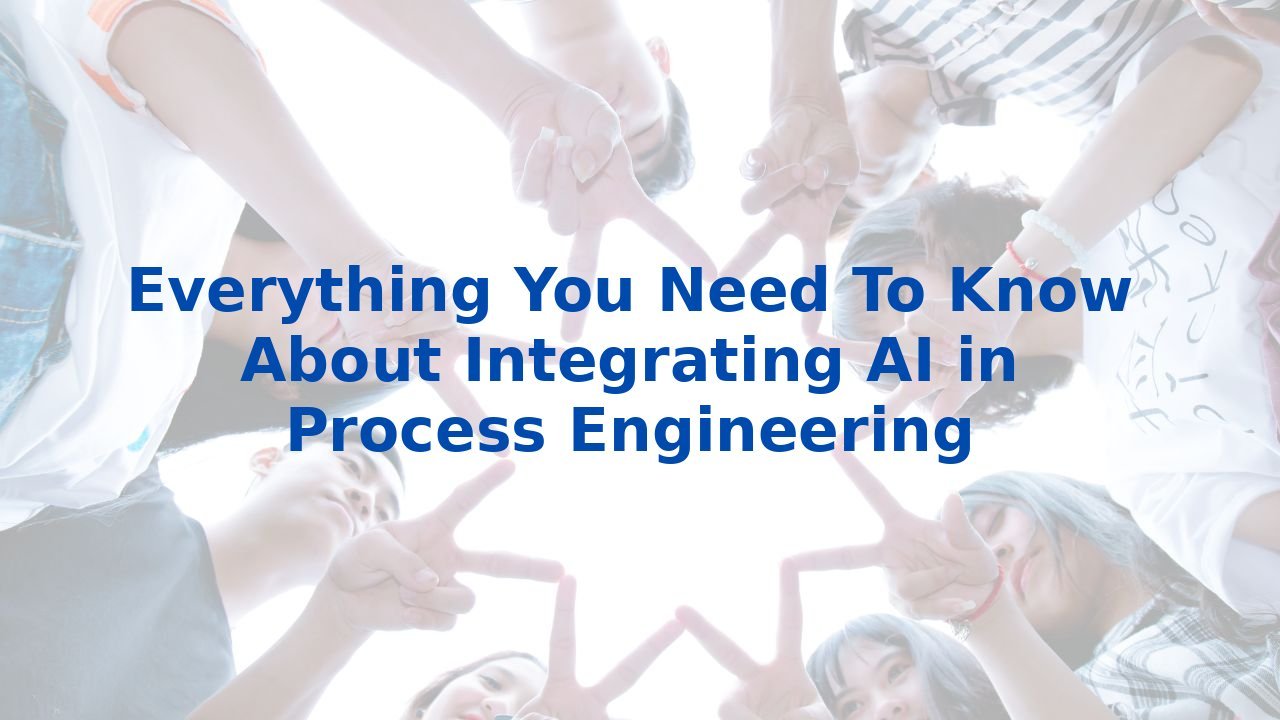Everything You Need To Know About Integrating AI in Process Engineering
Unveiling Process Engineering with AI: Revolutionizing Unit Operations
In the intricate world of process engineering, understanding unit operations is fundamental to driving efficiency and innovation. The “Process Engineering Unveiled” series delves into detailed insights that advocate the optimization of these operations. As the technological landscape continuously evolves, integrating Artificial Intelligence (AI) into process engineering can reshape traditional business processes, enhancing them like never before.
Understanding Unit Operations
Unit operations are the basic building blocks of any industrial process. From distillation and filtration to chemical reactions, each operation represents an essential step in transforming raw materials into finished products. Understanding and effectively managing these operations can significantly influence overall productivity, operational costs, and product quality.
The application of AI within these operations poses improvements in efficiency and accuracy. By implementing AI-driven data analytics, businesses can monitor and control processes with unprecedented precision. For instance, data sourced from sensors integrated within unit operations can be analyzed in real-time to detect anomalies, predicting potential failures before they occur. This predictive maintenance not only minimizes downtime but also reduces costs associated with unexpected repairs.
AI’s Role in Process Optimization
Process optimization is where AI truly shines. By utilizing algorithms that analyze historical data and identify patterns, organizations can streamline their operations to maximize output. AI can recommend modifications to parameters in real time, enhancing speed and performance.
Additionally, AI can automate repetitive tasks that traditionally consumed time and labor, allowing employees to focus on more strategic activities. For example, in the context of combustion gas denitrification—a unit operation crucial to reducing harmful emissions—AI-enabled systems can automatically adjust the conditions as needed, improving efficiency while meeting environmental standards.
“The future of engineering lies in the embrace of intelligent systems, where AI serves as a catalyst for innovation and efficiency.”
Enhancing Employee Training and Adaptability
As organizations embark on this transformative journey, equipping employees with the necessary skills to navigate AI technologies is paramount. Training your workforce prepares them to harness the full potential of AI, ensuring they are not left behind in the rapidly changing landscape of process engineering.
AI not only enhances the capabilities of existing staff but also elevates the overall culture of learning within an organization. Offering AI courses tailored to various roles—be it process engineers, managers, or operational staff—empowers employees to contribute meaningfully to process optimization initiatives. For organizations looking to facilitate this training effectively, developing custom AI solutions can address specific needs and ensure maximum relevance.
Benefits of AI Integration in Business Processes
Implementing AI into business processes brings a multitude of benefits:
- Increased Efficiency: Automation of routine tasks allows for faster processing times and reduced labor costs.
- Data-Driven Decision Making: AI analyzes vast data sets to provide actionable insights, enabling informed decision-making.
- Improved Quality Control: AI systems monitor product quality in real-time, ensuring high standards are consistently met.
- Enhanced Collaboration: AI tools facilitate better communication among teams, leading to streamlined project management.
Innovating for a Sustainable Future
A significant aspect of modern engineering is the emphasis on sustainability. AI assists in creating more eco-friendly processes by optimizing energy usage and minimizing waste. Through smart analytics, organizations can identify opportunities for sustainability improvements, aligning their operations with corporate social responsibility goals.
By embracing AI for process engineering, businesses are not just enhancing their operations; they are also shaping a more sustainable and innovative future for themselves and the industries they serve.
Conclusion
In conclusion, the integration of AI within process engineering is not merely an option; it is a necessity for those seeking competitive advantage and operational excellence. As the “Process Engineering Unveiled” series explores various unit operations, it becomes evident that AI can optimize every facet of these processes, from training employees to enhancing overall efficiency.
As we look to the future, investing in AI training for your workforce becomes a strategic imperative. With a skilled team at the helm, your organization will be well-equipped to navigate the complexities of modern engineering and emerge as a leader in the field.
Explore more about AI training opportunities and how they can benefit your organization by visiting Complete AI Training.



